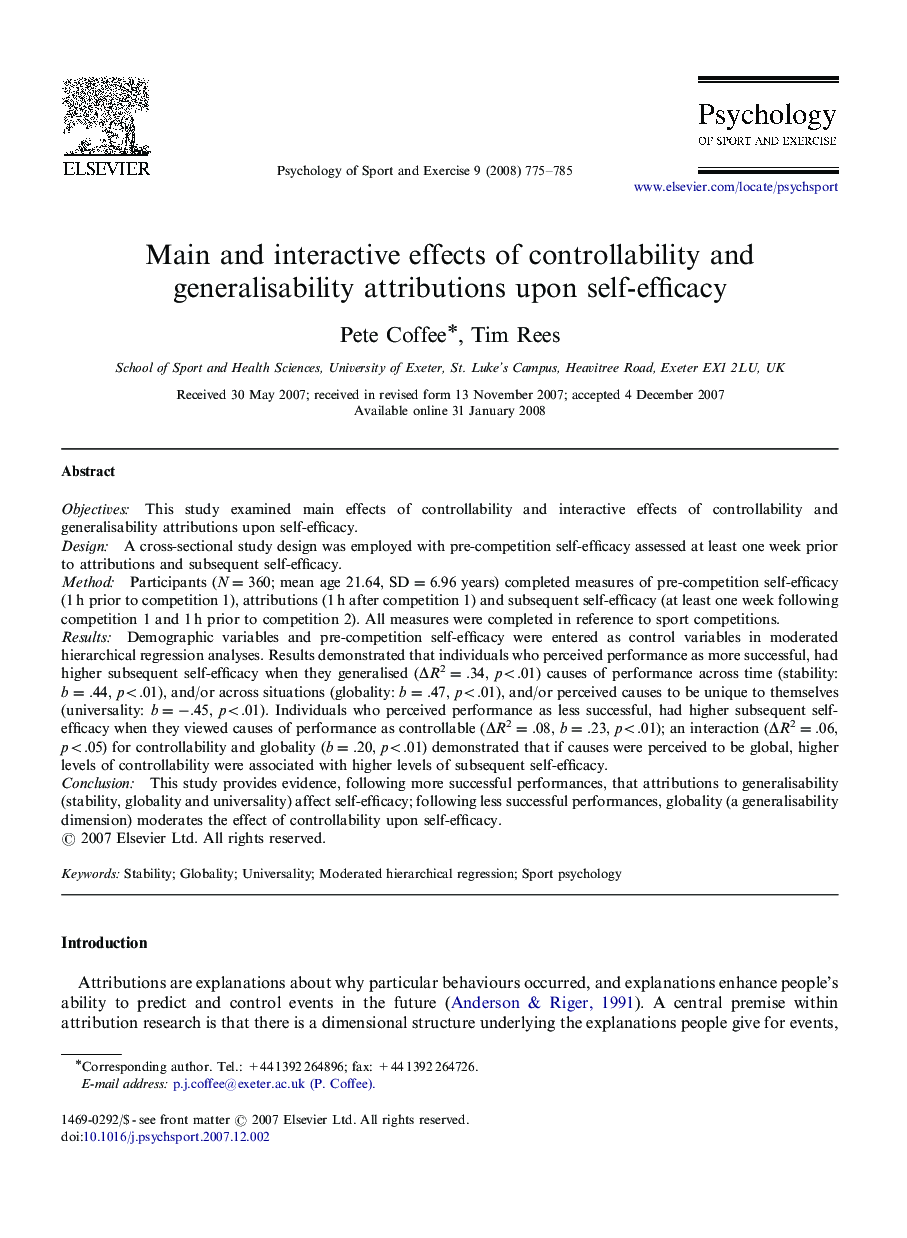| Article ID | Journal | Published Year | Pages | File Type |
|---|---|---|---|---|
| 894918 | Psychology of Sport and Exercise | 2008 | 11 Pages |
ObjectivesThis study examined main effects of controllability and interactive effects of controllability and generalisability attributions upon self-efficacy.DesignA cross-sectional study design was employed with pre-competition self-efficacy assessed at least one week prior to attributions and subsequent self-efficacy.MethodParticipants (N=360; mean age 21.64, SD=6.96 years) completed measures of pre-competition self-efficacy (1 h prior to competition 1), attributions (1 h after competition 1) and subsequent self-efficacy (at least one week following competition 1 and 1 h prior to competition 2). All measures were completed in reference to sport competitions.ResultsDemographic variables and pre-competition self-efficacy were entered as control variables in moderated hierarchical regression analyses. Results demonstrated that individuals who perceived performance as more successful, had higher subsequent self-efficacy when they generalised (ΔR2=.34, p<.01) causes of performance across time (stability: b=.44, p<.01), and/or across situations (globality: b=.47, p<.01), and/or perceived causes to be unique to themselves (universality: b=−.45, p<.01). Individuals who perceived performance as less successful, had higher subsequent self-efficacy when they viewed causes of performance as controllable (ΔR2=.08, b=.23, p<.01); an interaction (ΔR2=.06, p<.05) for controllability and globality (b=.20, p<.01) demonstrated that if causes were perceived to be global, higher levels of controllability were associated with higher levels of subsequent self-efficacy.ConclusionThis study provides evidence, following more successful performances, that attributions to generalisability (stability, globality and universality) affect self-efficacy; following less successful performances, globality (a generalisability dimension) moderates the effect of controllability upon self-efficacy.
